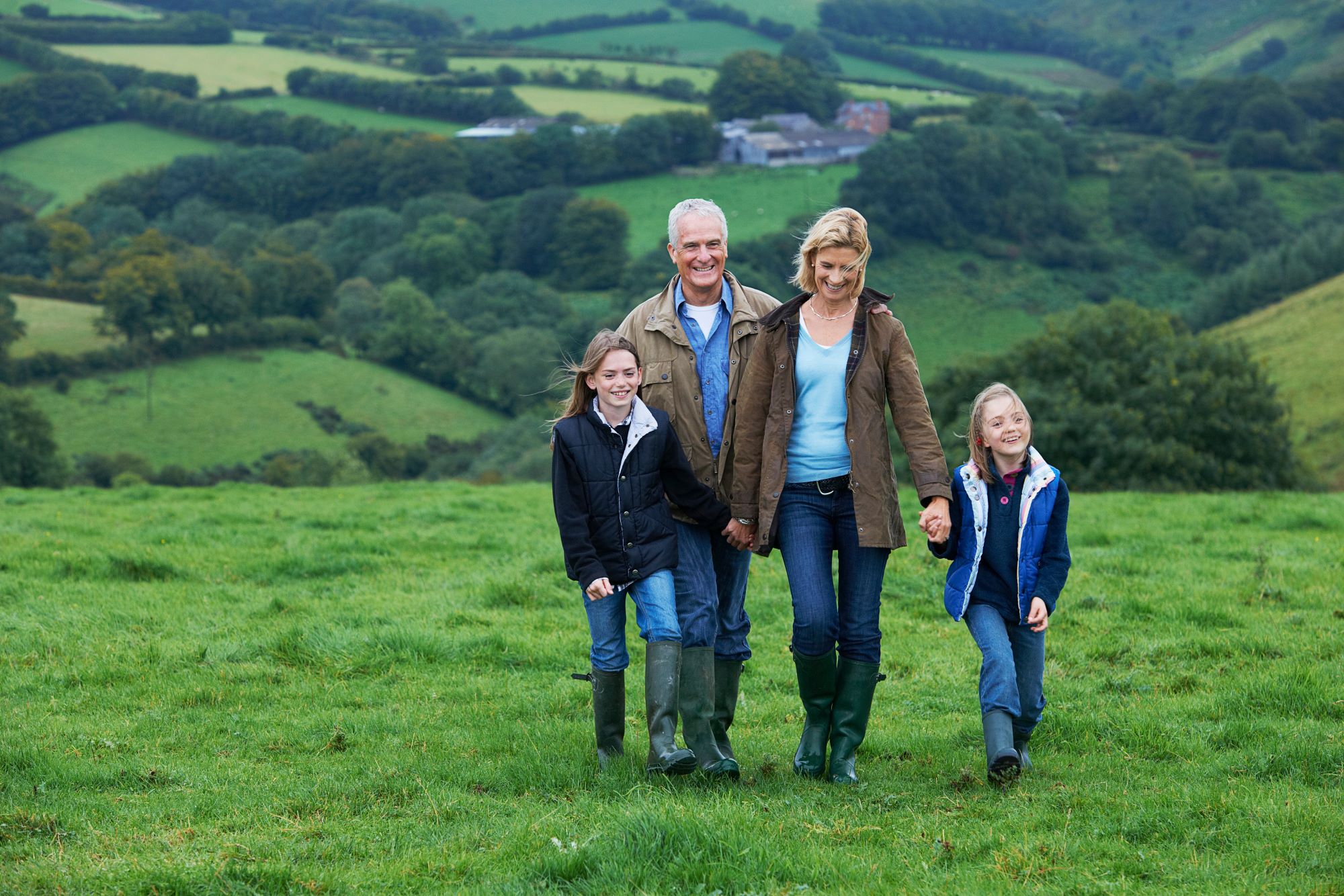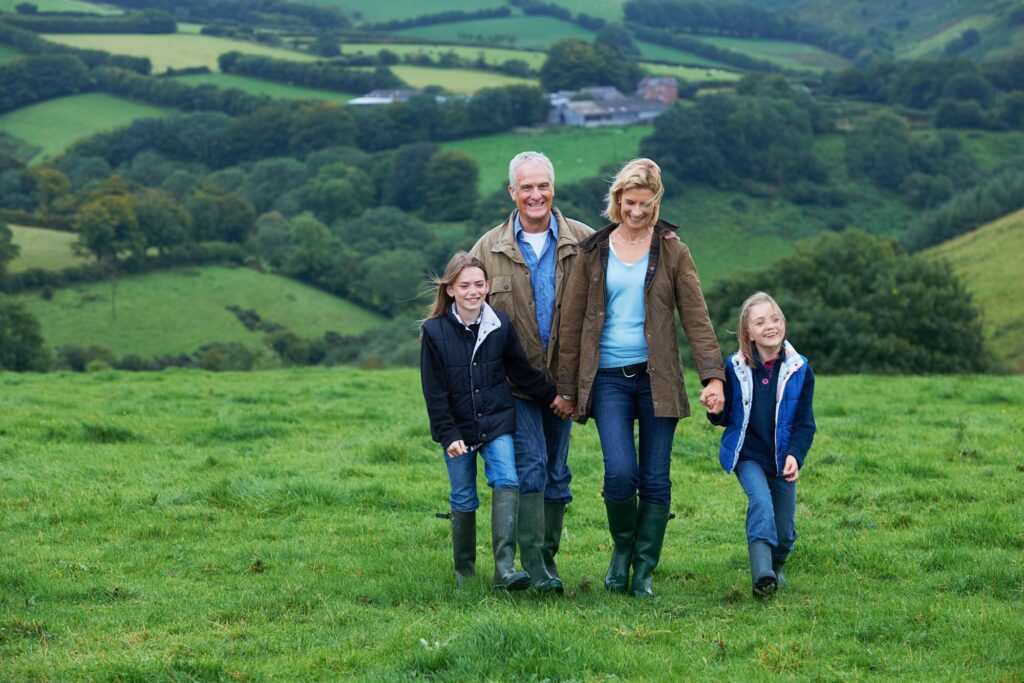A Guide to Succession for Farmers and Crofters
11 September 2024This guide to succession is aimed at farmers and crofters of all ages and stages in their careers.
For those nearing retirement, putting provisions in place for succession is not only sensible but a necessity that needs addressing.
For younger farmers and crofters, it serves two purposes: firstly making preparations and putting plans in place should the worst happen, and secondly it is also important to have an eye to the future. How do you make sure you can afford to retire or step back, whether by choice or not, safe in the knowledge that the next generation are provided for?
This guide is not designed to give the reader a definitive answer for their own business - every farm and croft is so very different that understanding the requirements for the business and the individuals means a bespoke solution is needed. Its purpose is to start the process by creating awareness and perhaps providing the push required to start the conversation.

Where do I want to be?
A planned and smooth transition to stopping work allows the employer or business time to prepare and gives the retiree the opportunity to wind down whether they are an employee or the owner. When the time comes there is often a personal or works pension scheme to supplement their state pension, with the whole retirement process the culmination of many years of planning. Just why is the farming community different?
Farming is a way of life - far more than a career in many cases and quite often a farmer’s bond with a farm and its land is strong. In many cases, a farmer will have made that business what it is today, from improving the land, building the steading or expanding the area, or they may feel that they themselves had to wait a long time to become the main decision maker. This connection means that retiring, passing the farm on or selling up may feel like giving up while the desire may still burn bright to take the farm to the next stage or even just stay in control. There is a danger however that while the mind may still be willing the body may start show its age!
Time will catch up with everyone and every farmer at some point needs to think about their future. For some, this may be seen as opportunity, for others this may be a cause of worry and fear due to the uncertainty involved and potential conflict within the family.
What do you want your retirement to be like?
It is important to consider just how you would like your future to look like – retirement or stepping back has to be both fulfilling and rewarding. It can be helpful to write down what this means to you (and your spouse/partner), thinking about the simple things from day-to-day life to wider aims and ambitions.
- Where do you see yourselves staying - on the farm, perhaps even building a new house or moving into a town or village? It is important to think about convenience as you get older – will you always be fit and mobile? Also ask how would you feel about watching someone else working your farm?
- What role do you want the farm to have in your future? Is it a phased reduction in activities using various types of agreements, a handing over of the farm to a family member or a clean break which may include selling up?
- How will you fill your days - do you have currently have interests, hobbies or travel plans? Just because you have stopped working the farm doesn’t mean you need to stop altogether – keeping active both physically and mentally is important for all ages.
- Are there things you have always wanted to do or own, but the farm has been too big a commitment? This can be material items or even putting something back into the community.

What do you need to do to make succession happen?
Questions to consider include:
- Is there someone to take on the farm? Usually this will be a close family member or members - if not, consider renting out the farm, contract farming or even selling up.
- Do the potential successors want to take on the farm and are they able to? This is important- taking on the farm should be an opportunity and not feel like a burden. Any successor’s skills and capabilities need to be considered – it may be that you need to have a role as a coach or mentor for some time.
- Is the farming business viable? This is an important consideration, a successor may have to make changes to the business and not be able to rely on it as a main income source. You may have been relying on pensions or other investments as part of your income, meaning you have had less need to take money out of the business, masking its true performance.
- Where will you go? Is staying in the farmhouse an option, can a house be built on the farm, is there alternative accommodation available (a cottage etc.) or does a house have to be bought? While staying in the farmhouse could have long term tax issues depending on your future role, building or buying need significant amounts of cash.
- Can you afford to retire or pass the farm on? What will you need to live and also give you the retirement you would like to have? What income sources will you have in terms of investments and pensions? People are also living longer so it’s also important to think about potential care costs.
- What about other members of the family- what do they want? While one son or daughter may be getting the farm, how are other family members provided for? How can you treat everyone as fairly as possible?
- What is the tax situation? Getting this right may still see beneficiaries have to pay some taxes - getting it wrong will see the family lose a much bigger proportion of an estate in various taxes - from capital gains to inheritance taxes. Involving an accountant early in the process is vital.
- Are there any business partners to consider? Often a farming business can be a partnership between siblings and the partnership agreement needs to be scrutinised to establish what happens in the event of one partner retiring or passing away. Remaining partners may have rights that supersede any will relating to an outgoing partner's share.
- Can any tenancies be passed on and do they have a value? A secure tenancy held under the Agricultural Holdings (Scotland) Act 1991 has a significant value and can be assigned to a much wider group of potential successors than in previous years. Again, this is an area that needs specialist advice and the involvement of a solicitor is recommended.
- Should it be done in phases or all at once? There can be many reasons for retirement to be done over a period of time - you may feel that you want to gradually step back, conversely a successor may want to take some time to get up to speed in running a farming business. There may be tax issues or you may be waiting for pensions or investments to mature.
- How do you keep everyone happy and avoid arguments? This is an impossible question! All you can do is start discussing things and planning in plenty of time - be open and listen to everyone’s opinion.
- Use professional help when required. This can be a solicitor for some of the legal issues, an accountant for taxation queries or an agricultural advisor for looking at different options. These professionals will have had experience of succession and retirement – they will have known of situations where things have gone well and also where things have gone badly. All will recommend lots of planning and discussion well in advance. In addition, sometimes a third party can act as a mediator in family discussions – keeping dialogue going and discussions on track.
- Having a trusted advisor for the family can also help act as a focal point and by having a good, working knowledge of the business, be able to guide and support the family should something happen by letting them know what needs to be done.
Click here to visit our Croft Succession Planning Guidance page for more information

Related Resources
Sign up to the FAS newsletter
Receive updates on news, events and publications from Scotland’s Farm Advisory Service

